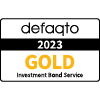Controlled Access Account
Make a gift into an absolute trust, and keep control of when the beneficiaries can access the trust fund, while potentially reducing your exposure to UK inheritance tax.
With the Controlled Access Account, you can make a gift into an absolute or bare trust arrangement for a child beneficiary with 99% entitlement and an adult beneficiary with 1% entitlement. The dual beneficial interest means the trustees can control when the beneficiaries access their share of the trust fund, even if they're an adult. The trustees can choose to allow maturing policies to be paid out to provide ongoing financial support while the child beneficiary is a minor, or defer maturities until the child beneficiary is an adult. The trust assets are invested to provide the opportunity for medium to long term capital growth and can be used for the beneficiaries’ ongoing financial support. Your gift into trust can also reduce your potential inheritance tax liability.




How the account works
Each account is made up of the following elements:
- An absolute or bare trust, which you make a permanent and irreversible gift into for investment.
- The trustees invest your gift into a series of single premium, investment-linked life assurance policies with different maturity dates. When these policies mature they can be paid to the trustees, who will distribute the proceeds to the beneficiaries.
Our Controlled Access Account
Setting up the account
Set up the Controlled Access Account with a lump sum, for the benefit of a named child. The child beneficiary is entitled to 99% of the investment and an additional adult beneficiary is entitled to the remaining 1%. Splitting the beneficiaries in this way makes sure that the child beneficiary does not have sole and immediate access to the trust assets when they reach 18.
Payments to the child before they’re 18
The trustees have the flexibility to choose whether to make yearly maturity payments to the child before their eighteenth birthday. Once the child is 18, this flexibility to defer annual maturities stops. The trustees should therefore decide, before the child beneficiary reaches 18, the age that they should receive future policy maturities. This can be anytime up until the age of 49.
Accessing your money
With a Controlled Access Account, you cannot receive any money from the investment. Therefore, it's only suitable if you’re certain that you want to give your entire investment to your chosen beneficiaries.
An absolute/bare trust
This is an absolute/bare trust for a named child and adult, which allows the trustees to control access to the investment. With a bare trust you cannot change the beneficiaries, so you’ll need to be certain about who you choose.
Tax
Income tax
A chargeable event gain may arise if an individual policy matures or the life assured passes away. Depending on their circumstances at the time, the child and adult beneficiary may need to pay income tax when a chargeable event gain arises. The chargeable event gain is assessed in the same proportion as the beneficiaries’ entitlement to the trust. If the settlor is a parent of the child beneficiary who’s under 18, their share of the chargeable event gain over £100 would be assessed on the parent settlor at their marginal tax rate. This is because of parental settlement anti-avoidance rules.
Inheritance tax
Your gift into the absolute/bare trust is a potentially exempt transfer (PET) for inheritance tax purposes and is free from inheritance tax if you live for seven years after making the gift.
As it's an absolute/bare trust, the trust fund value will be included in the beneficiaries’ estates – 99% in the child beneficiary’s estate and 1% in the adult beneficiary’s estate. If the adult beneficiary gifts their share of the trust fund to the child beneficiary, this is also a potentially exempt transfer (PET) for inheritance tax purposes and is free from inheritance tax if the adult beneficiary lives for seven years after making the gift.
For more information on tax, please speak with your adviser.